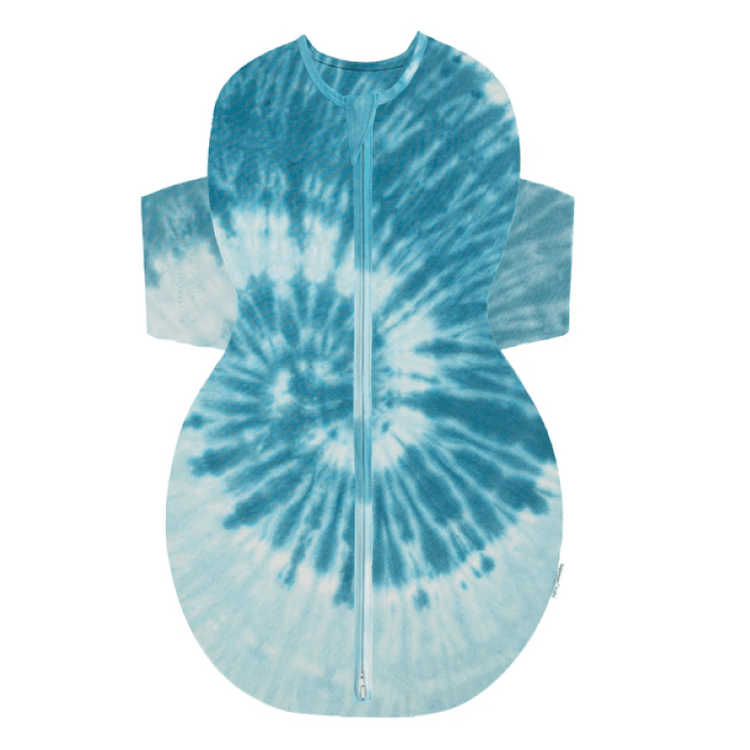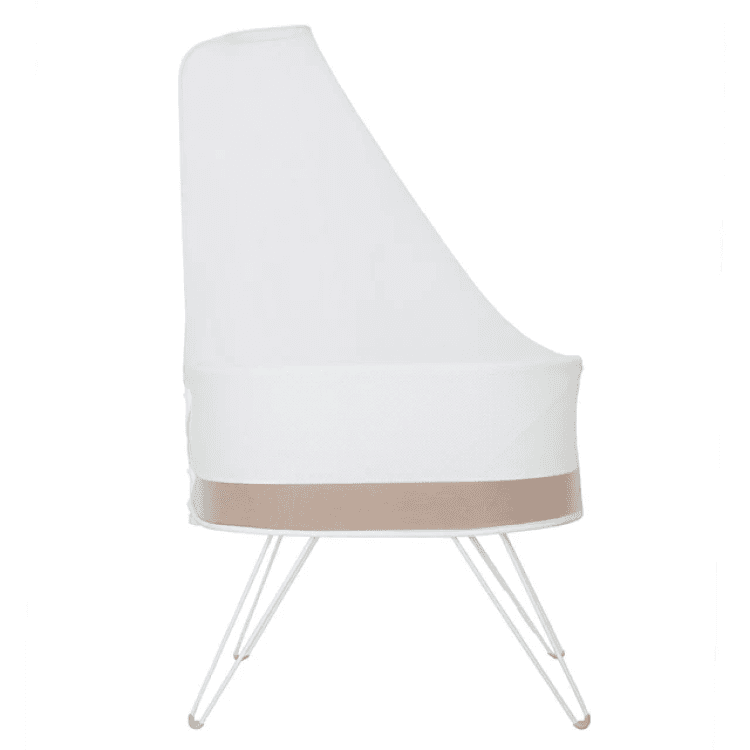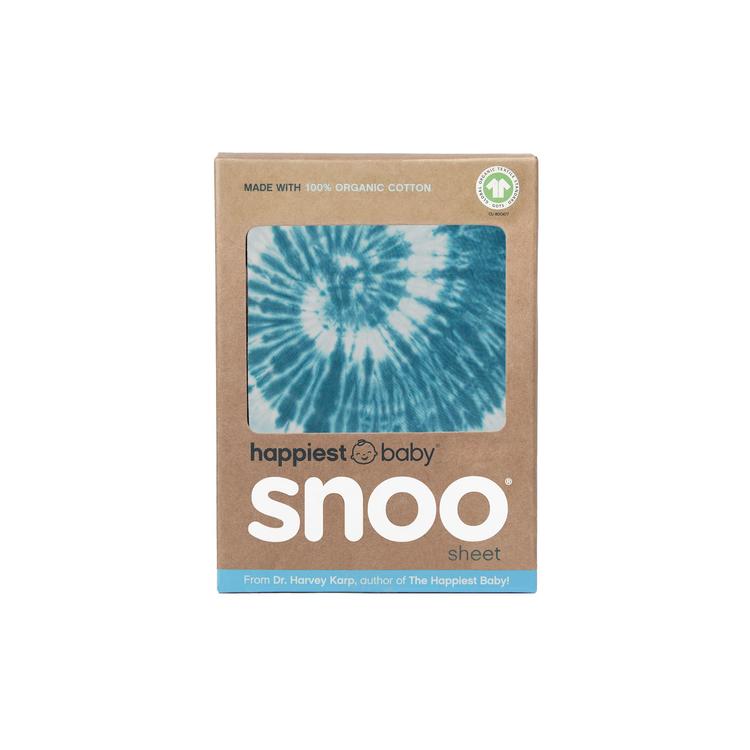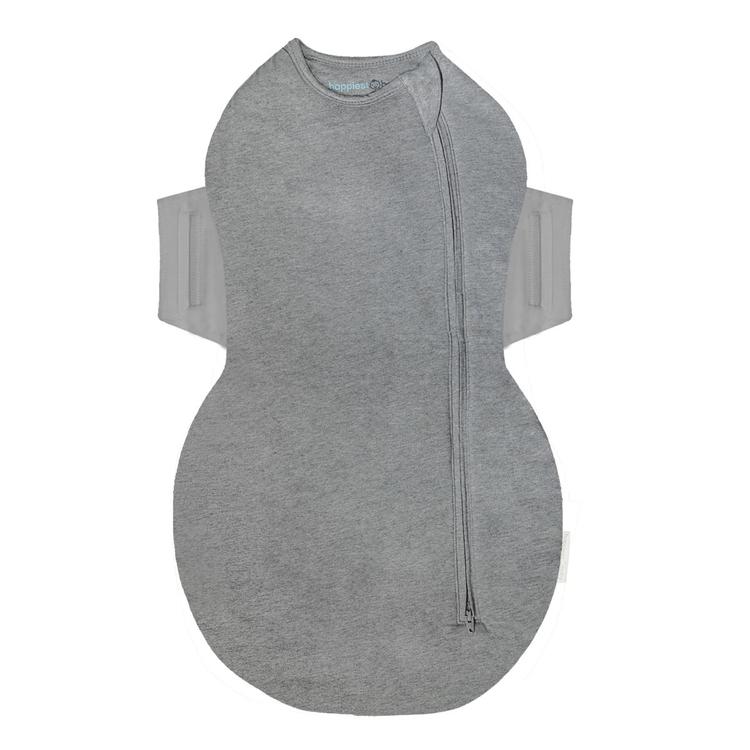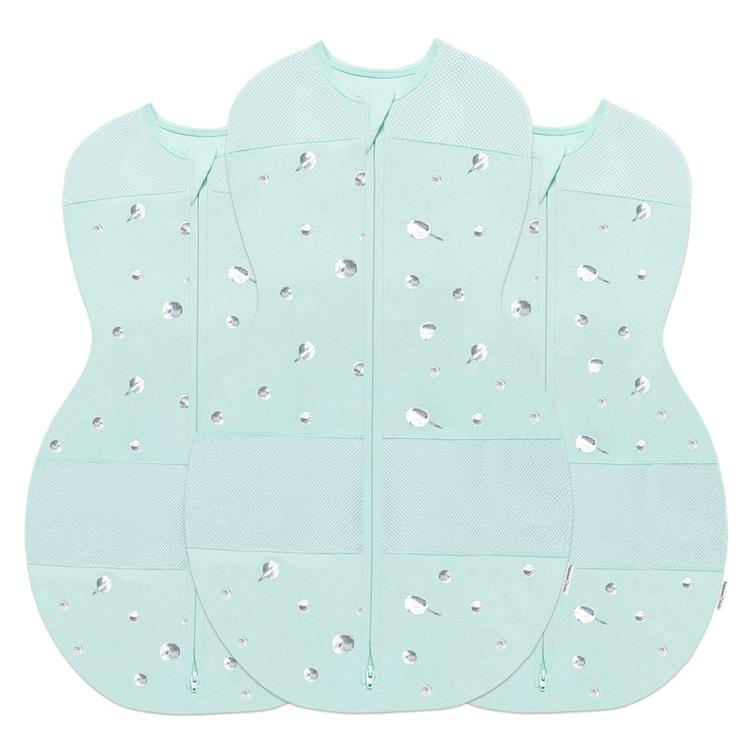BABY
Is My Newborn's Poop Normal?
Be prepared for weird-looking poo!

Written by
Dr. Harvey Karp

Chalk up “baby poop” as just another topic you never thought you’d be Googling! But once you’re a parent, you realize there is so much out there that you know nothing about…and that’s okay. You’re not expected to know it all from the get-go. Here’s your TMI-by-design guide to all things baby poop!
Newborn Baby Poop
While this “first” isn’t necessarily one for the baby book, it’s still important! Your brand-new bundle of joy will probably bless you with their first poop within 24 hours of birth. Your baby’s first bowel movement—and those that occur over the next few days—will be what’s called meconium. Meconium is, well, strange! It’s made up of everything your baby ingested while in the womb like amniotic fluid, dead skin cells, and water. This first poop is sticky, thick, and a dark greenish-black color—but you’ll be surprised to discover that it’s almost completely odorless. Within the next few days, your sweet baby’s poop will get waterier, lighten in color…and smelly!
Breastfed Baby Poop
If you’re breastfeeding your little one, their poop will be yellowish and runny with some particles mixed in. Some babies have a bowel movement after every breastfeeding session…while others only have three to four daily. By the time your baby is around 1 to 2 months old, their poop will thicken to the consistency of oatmeal and likely occur once a day or less. (The color of their poop will remain greenish, yellowish, or brownish as long as they’re nursing.) Don’t worry about calling your doctor unless your baby doesn’t have a seriously dirty diaper for more than three days…but call sooner if your baby has a weak cry, weak suck, or is acting sick.
Formula-Fed Baby Poop
If you’re formula-feeding, your bub’s poop will be thicker and firmer than what breastfed babies make. It’s almost like peanut butter. The color can range from yellow to tan to brown to green. Once your baby is around 1 to 2 months old, they may start to go a few days between bowel movements. This is normal!
Solid Food Baby Poop
Many parents begin introducing solid foods around 6 months of age. Once you do that, you’ll notice your baby’s poop changes. It will become browner and thicker…and—hold onto your hats—smellier! (Did you ever think you’ll miss these newborn poop days!?)
Hard, Pebble-Like Baby Poop
No matter if your baby is breastfed or formula-fed, if they’re passing hard, very dry, and/or pebble-y stools, that may be a sign that they’re not getting enough fluid or that they’re losing excessive fluid because of illness, fever, or heat. Hard, pebble-like bowel movements may also mean your bub is suffering from constipation. This can be quite common when your baby is first introduced to solid foods, but can also be a symptom of sensitivity to milk, soy, or lack of tolerance to something in breastmilk or infant formula.
Baby Poop Color Guide
While there’s a wide range of normal baby poop colors, there are certain hue clues that tell you something may be making your love bug ill. Odds are, you won’t have to call your doctor about your baby’s poop, but it’s good to know when to take that step. Here’s your guide to infant poop color…
Normal Baby Poop Colors
- Green Baby Poop: Green baby poop does not mean anything bad! Typically babies have green poop if they’ve been given iron supplements, or at 4 to 6 months when they are introduced to solid green foods such as pureed peas and spinach.
- Red Baby Poop: Startling? Yes! Something to freak out about? Usually not. Red baby poop is typically caused by red food or medicine. (Bloody stool is a different story. See below for more on this.)
- Orange, Yellow, and Brown Baby Poop: These sunny colors are very common in the poop of breastfed and bottle fed babies…and there’s nothing to worry about!
- Black Baby Poop: Your baby’s first few BMs will be black, so no worries there. But if black poop arrives after their very first poops, see “Warning Signs” below.
- Speckled Baby Poop: If your baby’s poop has specks of black blood in it, then it means your baby has digested blood while breastfeeding. This is not a cause for alarm, but, you’ll want to check with your doctor to make sure the blood is not a symptom of something more serious.
Baby Poop Color Warning Signs
- Runny Baby Poop: Runny poop or diarrhea that’s green, yellow, or brown, can be an indication of an infection or allergy.
- Bloody Baby Poop: Sometimes baby poop can turn red because of food or liquids such as tomatoes or beets. But red baby poop can also be a sign of blood in the stool, signaling possible allergies, gastrointestinal bleeding, or a bacterial infection.
- Green Mucus in Baby Poop: Slimy, green mucus in your baby’s poop can be a sign of an infection. Look for green-colored streaks with glistening strings.
- White Baby Poop: Chalky baby poop that is gray or white in color can be a sign that your baby is not digesting food properly, or that there is a lack of bile in the liver.
Baby Diarrhea
On a good day, your little one’s stools are kinda soft and a little runny, too. Because of this, it’s not always easy to tell what’s mild diarrhea and what’s normal. To help, it’s good to keep in mind that a sudden increase in stool frequency—think more than one poop per feed—and unusually liquidy stool usually points to baby diarrhea. The reason doctors like me can be concerned about baby diarrhea is the possibility of dehydration. (Keeping your baby hydrated with formula or breastmilk is important!) Also, if your little one also has a fever and is less than 3 months old, call your pediatrician.
Disclaimer: The information on our site is NOT medical advice for any specific person or condition. It is only meant as general information. If you have any medical questions and concerns about your child or yourself, please contact your health provider. Breastmilk is the best source of nutrition for babies. It is important that, in preparation for and during breastfeeding, mothers eat a healthy, balanced diet. Combined breast- and bottle-feeding in the first weeks of life may reduce the supply of a mother's breastmilk and reversing the decision not to breastfeed is difficult. If you do decide to use infant formula, you should follow instructions carefully.
SHARE THIS ARTICLE
PARENT PICKS
Bestsellers








